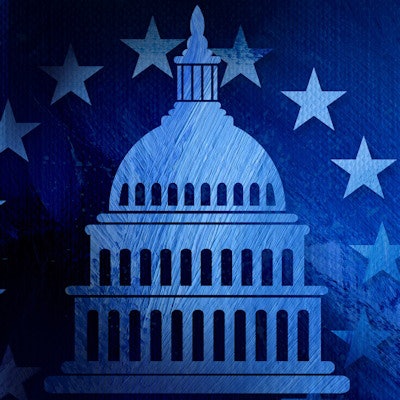
The revival of legislation to change the regulation of laboratory-developed tests (LDTs) has drawn a mixed response. The reintroduction of the Verifying Accurate, Leading-edge IVCT Development (VALID) Act is intended to remove barriers that are believed to have impeded the U.S. government's response to the coronavirus epidemic.
The issue of diagnostics regulation has emerged as a political lightning rod, with some faulting the Trump administration's response to the outbreak and others blaming what they claim is a history of federal overregulation of clinical labs.
Clinical labs are regulated by the U.S. Centers for Medicare and Medicaid Services (CMS) under CLIA and are not typically subject to oversight by the Food and Drug Administration (FDA). However, the FDA does regulate individual diagnostic tests, with diagnostic manufacturers required to gain FDA approval to market their assays. Yet another regulatory category, laboratory-developed tests, are tests that labs can develop and use on their own.
The situation has created several hurdles in responding to the novel coronavirus. When the FDA declared the coronavirus a public health emergency, it triggered a requirement that labs in the field get the FDA's blessing to use their LDTs for the virus. The FDA subsequently waived this rule on February 29, but the need for a permanent solution to the regulatory environment is apparent.
So, last week, congressional representatives revived the VALID Act, a reform of diagnostics regulations that had failed to pass in previous legislative sessions. The legislation removes the requirement for FDA approval in national emergencies, and it gives the agency the ability to regulate a new category of diagnostics: in vitro clinical tests (IVCTs). High-risk tests would go through FDA premarket review, while low-risk tests would only require a certification process.
The proposed legislation is drawing mixed reviews, however, with positions being drawn largely across traditional fault lines in the industry, according to Bruce Carlson, publisher of market research firm Kalorama Information.
"The industry associations that produce commercial IVD kits and pathologists who are concerned about overcommercialization of lab tests are clashing with representatives of the laboratories themselves," Carlson said. "These opinions represent longstanding positions of the players."
The American Association for Clinical Chemistry (AACC) believes the VALID Act "introduces new and redundant regulatory hurdles" for labs for many diseases and conditions that are not public health emergencies, according to a March 6 press statement.
The AACC sees the VALID Act as imposing new and duplicative regulations on labs, as well as "cost-prohibitive" user fees for labs that develop tests for nonemergency applications.
"The single provision on public health emergencies touted by the bills' supporters does nothing to reverse the crippling effect the legislation would have on hospitals and smaller labs in day-to-day healthcare situations," the AACC noted in its statement.
Furthermore, the FDA's involvement in the regulation of laboratory-developed tests for the coronavirus "caused significant, potentially harmful delays in containing this epidemic," the AACC claimed. The group said that while it supports the FDA's decision to relax the emergency use authorization (EUA) requirements for the coronavirus, it is concerned that the VALID Act would create the same regulatory restrictions for other tests that impeded the response to coronavirus. The group urged Congress not to pass the bill immediately, pending more debate on the issue.
On the other hand, the College of American Pathologists (CAP) said it views the current iteration of the VALID Act as a "step in the right direction." The college said the previous version of the legislation had been changed so that it now relies on existing regulatory structures, and it requires the Trump administration to make sure there is no duplication between CLIA and FDA requirements.
Industry association AdvaMed also came out in favor of the VALID Act: It said the legislation includes "smart diagnostics regulatory reforms" that will incentivize and speed the development of diagnostic tests, to the benefit of patients.














